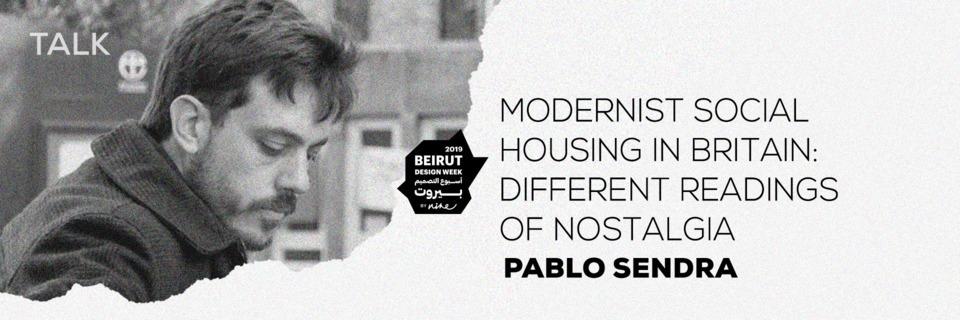Modernist Social Housing in Britain: Different Readings of Nostalgia by Pablo Sendra - Beirut Design Week | TALK

Modernist Social Housing in Britain: Different Readings of Nostalgia by Pablo Sendra - Beirut Design Week | TALK
ABOUT THE TALK:
Modernist social housing in Britain: different readings of nostalgia to advocate for their disappearance, for their fetishization, for social justice or for calling them home.
Modernist architecture was the flagship style of the post-war reconstruction of Britain after World War II. The country had suffered from the War and wanted to implement an ambitious welfare program, which would provide egalitarian access to housing, health, and education. The 1950s propaganda posters used modernist architecture to explain the welfare state project.
The first approach involves certain political and architectural discourses that view the Victorian past of Britain with nostalgia and claim for a vernacular style of streets with terraced housing, which modernist architecture had destroyed in the mid-20th century.
A second approach to modernist social housing, which has emerged very recently, is a new trend for Brutalist architecture, which has resulted in some of the most iconic Brutalist tower blocks to be turned into luxury apartments, causing the displacement of residents.
The third kind of nostalgia associated with modernist social housing is one that has been used by some architectural theorists, critical urbanists, writers and filmmakers.
And finally, the demolition of these neighborhoods creates a deep sense of memory loss. The talk reflects the different forms of nostalgia that modernist social housing evokes, and how these different approaches interact and clash.
ABOUT THE ORGANIZER:
Pablo Sendra is Lecturer in Planning and Urban Design at The Bartlett School of Planning, University College London (UCL). He combines his academic career with professional practice in urban design. He is co-founder and director of the urban design practice Lugadero, which has recently run a co-design process for two public spaces in Wimbledon, London, UK. He is also co-founder of Civicwise, a network that works on civic engagement and collaborative urbanism. His main areas of research interest are social housing neighbourhoods and collaborative processes for planning and designing public spaces. He studies the impact that regeneration processes have on people’s relationships and looks at design strategies that encourage unplanned activities and sociability in the public realm. He has developed action research projects and radical teaching in collaboration with community groups and activists in London. At UCL, he is the Director of the MSc in Urban Design and City Planning programme, the coordinator of the Civic Design CPD Course and the Deputy Leader of the Urban Design Research Group.
FREE ENTRANCE! JUST RESERVE YOUR SEAT BY SIGNING UP AHEAD!
BDWX9